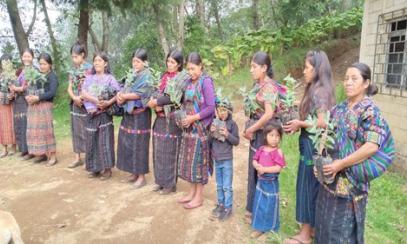Radio station plays important role in Guatemala Mission
The Guatemala Mission’s radio station, Nawal Estereo, has been instrumental in helping communities in the mountainous highlands of Guatemala during the coronavirus pandemic, even with fewer staff members. Thanks to an anonymous donor in the Spokane diocese, Nawal Estereo was able to purchase new transmitters and reach as many as 150 additional communities.
Lourdes Tzoc Ramirez, the radio station’s director, reports that the station continues to broadcast information about the pandemic, bringing in doctors and other medical experts to share knowledge and provide guidance over the air.
Another public service the radio is providing during the pandemic is an innovative use of its airwaves for the education of young people. Teachers from the local schools come into the station two times each month to communicate with parents and students. Ahead of their visits, the station broadcasts when the teachers will be there; then, parents and students listen and send in questions via WhatsApp from a phone. Teachers respond to the questions in real-time over the radio.
Education, in various forms, has always been an invaluable service the radio station provides. During the summer of 2020, the president of Guatemala declared a state of emergency in Nahuala and New Ixtahuacan due to violence between the two communities over a long-standing land and water dispute. Then, experts broadcast from the radio station, explaining the situation and what it meant to the community. Since curfews had been implemented, it was critical that people understood the rules to remain safe.
Many people have used the station to send messages to friends, relatives, business acquaintances, and others in outlying communities during the pandemic. People who use the radio station in this manner are asked to pay for services; however, if they cannot, they are not refused.
Unfortunately, Nawal Estereo has experienced reduced income recently, as it is unable to broadcast about processions and other group events due to the pandemic. At the same time, the station’s operating costs have increased, as the stronger transmitter it now uses requires more electricity. As a result, the entire staff was not paid for the month of May and received only half of their salaries in July and August. Since then, two station employees have resigned.
Even with these obstacles, Ramirez expressed heartfelt gratitude and firmly asserted that the radio station continues to work to help the community.



